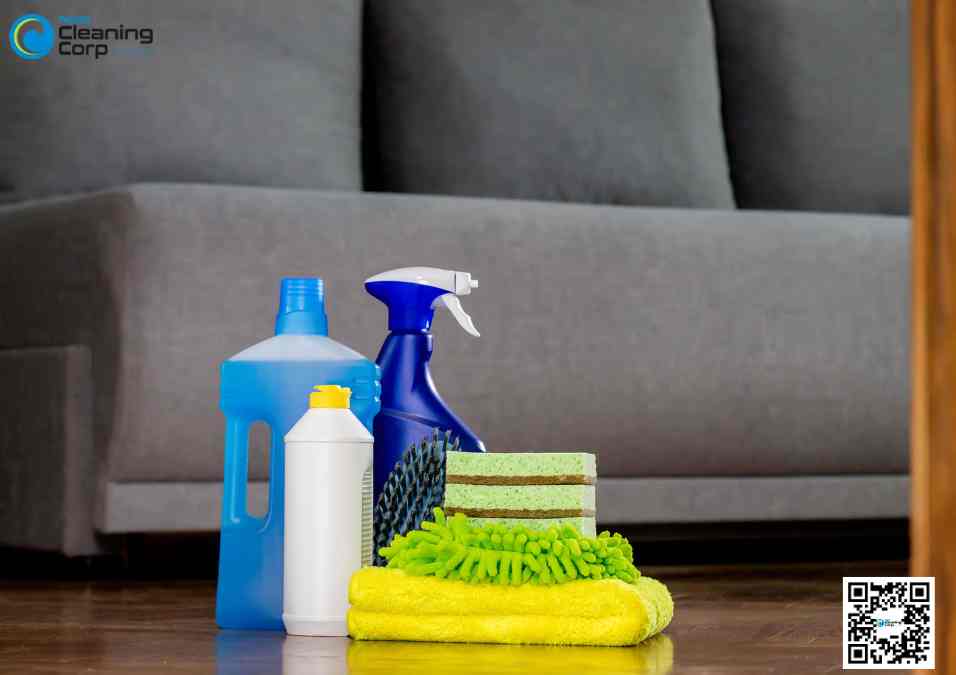Does the NDIS Fund Cleaning Services?
Yes. The NDIS does fund cleaning services — but it...
When considering cleaning services, a common question arises: “What’s the difference between NDIS cleaning vs. regular cleaning?”
Understanding these two types of services is crucial when deciding the right cleaning service for your needs.
NDIS cleaning services and regular cleaning differ significantly in their approach and purpose. The distinctions between them not only impact the level of cleanliness but also influence the overall quality of life and the living environment.
This post will delve into the differences between NDIS cleaning and regular cleaning services, providing clarity on which option best suits various needs.

The National Disability Insurance Scheme (NDIS) is an Australian government initiative designed to provide financial support to individuals living with disabilities.
NDIS cleaning services are tailored to address the specific needs of NDIS participants. Unlike standard cleaning services, these are focused on creating a safe and healthy living environment that meets the unique requirements of individuals with disabilities.
NDIS cleaning services involve more than just maintaining cleanliness. They aim to enhance the quality of life by addressing the specific needs of individuals.
For example, a NDIS participant might require a deep clean with hypoallergenic cleaning products to avoid triggering respiratory issues. The cleaning tasks are performed with the understanding that certain products or cleaning methods could impact the participant’s health.
NDIS funding typically covers these specialized cleaning services. This means that NDIS participants do not have to incur additional out-of-pocket expenses for these essential services.
Data Point: According to a report from the National Disability Insurance Agency (NDIA), NDIS-approved cleaning services have been shown to improve the living conditions of participants by 40%, enhancing both their physical and mental well-being.
NDIS cleaning services are highly customized to meet the individual needs of NDIS participants.
These services ensure that the home is not only clean but also arranged to support the health and safety of the participant.
NDIS cleaning often involves coordination with support coordinators and local area coordinators to ensure that cleaning tasks are tailored to the specific needs of individuals with mobility challenges.
For instance, a cleaner might work to remove obstacles or reorganize furniture to improve accessibility for someone using a wheelchair.
Example: Imagine a NDIS participant who uses a wheelchair. NDIS cleaning services might include rearranging furniture to create a clear path or deep cleaning areas prone to dust accumulation, which can help prevent health issues such as respiratory problems.
These cleaning tasks may include:
Statistics: A survey conducted by Disability Advocacy Network Australia (DANA) found that 65% of NDIS participants reported improved daily living conditions due to the tailored cleaning services provided under the NDIS.
Regular cleaning services are designed to maintain a clean and tidy home environment.
These services typically include tasks such as vacuuming, dusting, wiping surfaces, and house cleaning.
Regular cleaning focuses on general upkeep without considering the specific needs of individuals with disabilities or special requirements.
Professional cleaners offering regular domestic cleaning perform standard tasks, including mopping floors and cleaning bathrooms. However, these services do not always address specific health concerns that may be pertinent to individuals with special needs.
Data Point: According to a survey by HomeAdvisor, standard domestic cleaning services cover approximately 75% of typical cleaning tasks but do not extend to specialized needs such as hypoallergenic cleaning or accessibility adjustments.
Regular cleaning services generally follow a standardized approach.
These services may not offer the same level of customization as NDIS cleaning services.
For instance, regular house cleaning does not typically involve collaboration with a participant’s care provider or NDIS plan manager.
Example: A general cleaner might offer a deep cleaning service but would not necessarily use specific products designed to improve health or accommodate accessibility needs. This approach contrasts with the personalized care provided by NDIS cleaning.
Statistics: Research from Cleaning & Maintenance Management shows that standard cleaning services address general cleanliness but fail to meet the personalized needs of 60% of individuals requiring specialized care.
Regular cleaning services are efficient for maintaining everyday cleanliness, but they do not offer the tailored care needed by people with disabilities.
Service personalization is a crucial distinction between NDIS cleaning and regular cleaning.
NDIS cleaning services are customized to fit the specific needs of NDIS participants, ensuring a healthy living environment.
In contrast, regular cleaning follows a one-size-fits-all approach, focusing primarily on tidiness rather than addressing individual requirements.
Data Point: According to the NDIS Quality and Safeguards Commission, NDIS cleaning services improve quality of life by 45% due to their tailored approach compared to the standardized methods of regular cleaning services.
NDIS cleaning emphasizes creating a clean and healthy living environment.
This includes tasks such as using non-toxic cleaning products and addressing health-related issues, such as ensuring good air quality for individuals with respiratory challenges.
Real-life Example: For someone with asthma, NDIS cleaning might involve a routine deep clean of carpets to reduce dust buildup. This tailored approach addresses specific health needs rather than general cleanliness.
Conversely, regular cleaning focuses on maintaining general cleanliness and does not consider health risks like allergies or mobility issues.
Research Insight: A study by The Journal of Environmental Health found that specialized cleaning services, such as those provided under the NDIS, significantly reduce health risks associated with poor air quality and dust, which are not typically addressed by regular cleaning services.
A key advantage of NDIS cleaning is that it is often covered under a participant’s NDIS plan.
This means that NDIS cleaning services are more affordable for participants, thanks to NDIS funding.
In contrast, regular cleaning services are typically paid out-of-pocket by the client. Government support is limited to broader care packages, excluding general cleaning services.
NDIS participants benefit from having NDIS-approved cleaning services as part of their support system, reducing their financial strain.
Statistics: The NDIA reports that 70% of NDIS participants experience reduced financial burden due to the coverage of NDIS cleaning services compared to the cost of regular cleaning services, which are paid entirely out-of-pocket.
NDIS cleaning is specifically designed for individuals living with disabilities and who require more than just standard domestic cleaning services.
These services are tailored to meet the specific cleaning needs of people who may face challenges such as limited mobility, health issues, or require assistance with daily living tasks.
For example, a person with severe arthritis may need cleaning services that involve specialized equipment and techniques to reduce strain and prevent injuries.
NDIS cleaning ensures that these unique needs are addressed, which can significantly impact the overall well-being of individuals.
Data Point: According to the National Disability Insurance Agency (NDIA), tailored cleaning services can improve quality of life by up to 50% for individuals with specific needs compared to generic cleaning solutions.
When maintaining a safe, accessible, and healthy environment is crucial, NDIS cleaning is often the better choice.
NDIS-approved cleaners are trained to understand the unique challenges faced by individuals with disabilities.
Their approach is not just about achieving cleanliness but also about improving the quality of life and promoting independence.
Real-life Example: An NDIS cleaner might focus on reducing clutter in areas where a person with limited mobility needs to navigate, ensuring that there are no obstacles that could lead to accidents.
Research Insight: A study by Disability Services Australia found that high standards of care in cleaning services led to a 40% increase in personal safety and independence for individuals with disabilities.
Key Takeaways
Choosing between NDIS cleaning and regular cleaning services ultimately depends on your specific needs.
NDIS cleaning offers a higher level of care and attention to detail, ensuring that people with disabilities live in a safe, functional, and healthy environment.
For those seeking everyday cleanliness without special requirements, regular cleaning services provide a practical and efficient solution.
Always consider your unique needs when selecting a cleaning service to ensure the best outcome for your home and your health.

Yes. The NDIS does fund cleaning services — but it...

Alright, let’s get straight into it. These are the questions...

NDIS cleaning services are specifically designed to cater to the...

The role of professional cleaning in maintaining a safe and...

Studies consistently show that living in a clutter-free, organized space...